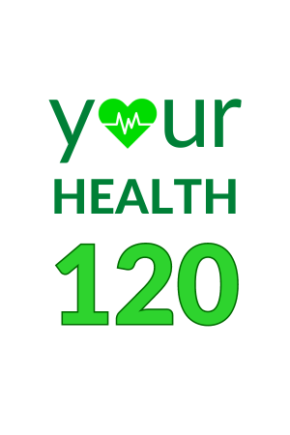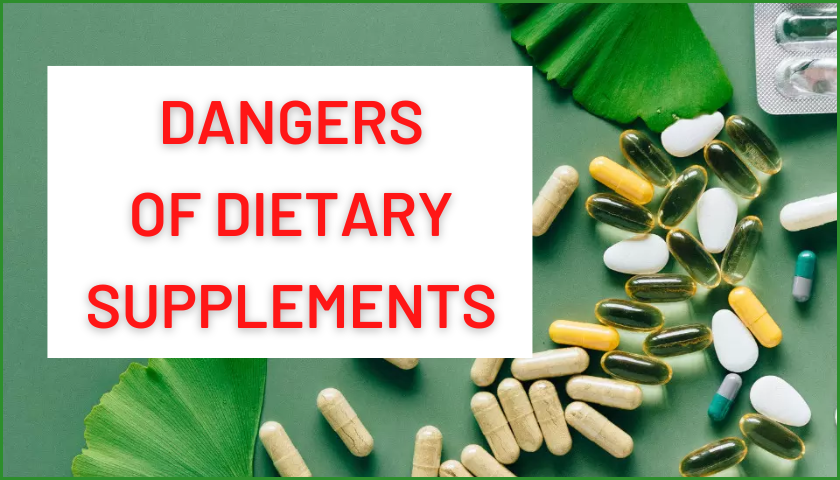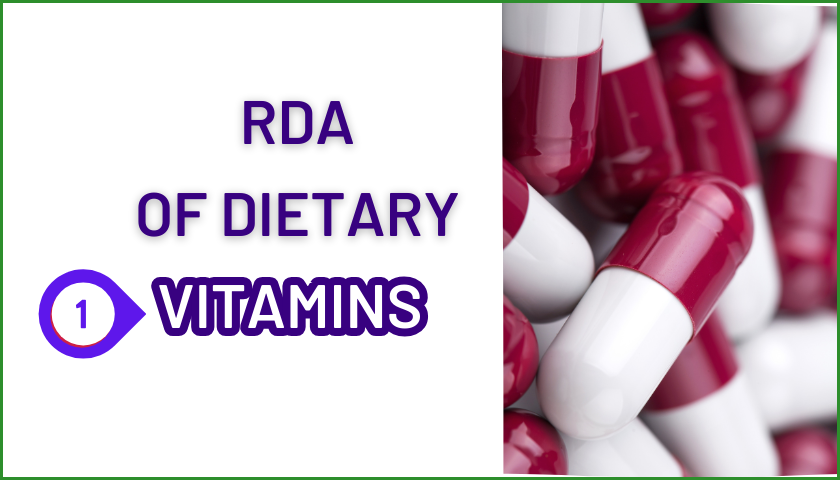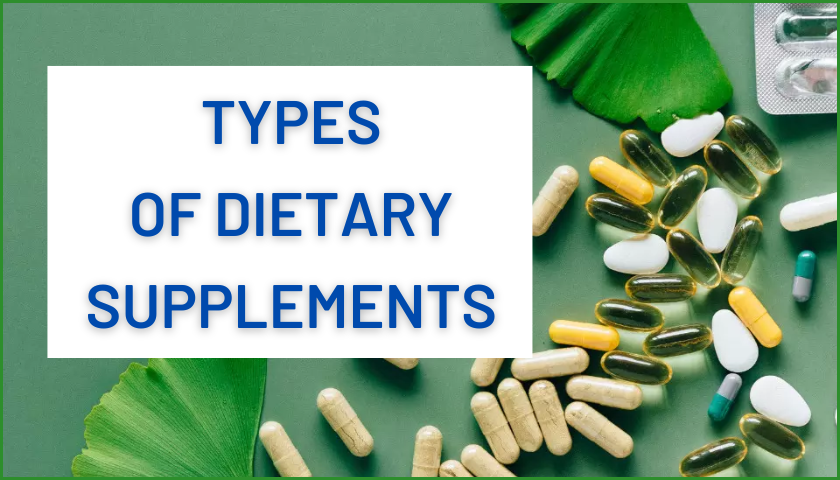It comes as no surprise, that because we live in an increasingly deceptive world, dietary supplements pose hidden dangers. While supplements are rightly touted, as the best way to supplement a less-than-perfect diet. They might well be the very reason why your health is on the decline! In this article we delve into the hidden hazards of dietary supplements. Let’s take a moment to uncover the hidden hazards of dietary supplements such as: Contamination. Expiration, Mislabeling, False Claims, Interactions, Synthetics, Dosage, Binders & Fillers.
Hidden Dangers: Manufacturing & Quality of Dietary Supplements
-1- Contamination
What You Don’t Know Can’t Hurt You. Not Really!
Contamination is one of the hidden dangers of dietary supplements. Some supplements contain harmful substances like heavy metals (lead, mercury), pesticides, bacteria, or undisclosed prescription drugs. This is caused by poor manufacturing practices, compromised raw materials, or intentional adulteration. Exposure to contaminants leads to heavy metal poisoning, infections, allergic reactions, or unintended drug effects.
For instance, some herbal supplements contain high levels of lead, that cause poisoning over time. Largely due to factors related to production and sourcing. Industrial activities, mining, and pollution also introduce lead into the environment. As a result, soil and water sources absorb the contaminants. Eventually accumulating in plantsused for herbal supplements processing. Once ingested, symptoms include abdominal pain, neurological changes, and kidney damage. Children and pregnant women face higher risks from these contaminants.
Another issue is undisclosed prescription drugs in supplements. Manufacturers might add drugs to boost product effectiveness or due to cross-contamination. Some weight loss supplements contain sibutramine, a drug withdrawn for cardiovascular risks. Users may experience heart palpitations, high blood pressure, and other serious health issues.
-2- Mislabeling Dietary Supplements
Read It Again. Then Once More!
A hidden factor that compromises the integrity of the dietary supplements industry while posing great health risks is mis-labeling. This occurs when the ingredients listed on the supplement label do not match the actual contents, or the amounts indicated are incorrect. This arises as a result of manufacturing errors, lack of regulatory oversight, or cunning deliberate deception to cut costs and maximize profits.
Incorrect labeling can lead to ineffective dosing, unintentional ingestion of harmful substances and worse exposure to allergens. To illustrate this, a protein supplement may claim to contain whey protein but be spiked with inexpensive amino acids instead to inflate the protein content.
In addition, a vitamin supplement might claim to be free of artificial colors. Yet contain undisclosed synthetic dyes to enhance appearance. Thus misleading consumers who seek natural products. Such misrepresentation can lead to unintended consumption of substances users are trying to avoid, posing potential health risks.
-3- Quality Control Issues
Cheap Is Expensive. Always!
When it comes to supplements it is always best to err on the side of caution. Compromised quality control poses significant risks in dietary supplements. This leads to variation in product quality and potency due to inconsistent manufacturing practices and a lack of standardization. This variability can result in ineffective products and varying dosages. In most cases this is due to weaker supplement regulations compared to pharmaceuticals.
A great example, would be inconsistent dosages in melatonin supplements. Typically, inconsistent dosages, refers to variations in the amount of melatonin ‘the active ingredient’ contained in each gel, capsule, or tablet within the same brand or product line. This inconsistency can occur due to factors such as uneven distribution of melatonin during manufacturing, inadequate quality control, or variations in the formulation process.
As a result, some units may contain more or less melatonin than stated, impacting their ability to regulate sleep effectively, causing disruptions in sleep patterns. This can disrupt the body’s natural sleep-wake cycle. Leading to a disrupted circadian rhythm, sleep disturbances such as difficulty falling asleep or even staying asleep. As well as daytime drowsiness, fatigue and reduced productivity.
-4- Binders and Fillers
All That Glitters Is Not Gold. Usually!
Often, supplements contain binders, fillers, and other inactive ingredients that represent a concealed danger. These can cause allergic reactions or other health issues. Binders and fillers are used to hold the supplement together and provide bulk but, may include allergens or harmful substances. These substances can cause gastrointestinal distress, allergic reactions, and other adverse effects, particularly in sensitive individuals.
For example, some supplements use lactose as a filler ingredient. Lactose, a sugar found in milk, causes digestive issues for lactose intolerant individuals. The intolerance results from insufficient production of lactase, the enzyme needed to break down lactose in the digestive system. When lactose intolerant individuals consume supplements containing lactose, they may experience symptoms such as bloating, gas, abdominal pain, and diarrhea. It’s essential for individuals with lactose intolerance to check supplement labels carefully and opt for lactose-free alternatives to avoid digestive discomfort.
Another binder that is commonly used in supplements is magnesium stearate. Magnesium stearate is primarily composed of magnesium and stearic acid. It is a common additive used to prevent ingredients from sticking to manufacturing equipment and to improve the consistency of supplements. However, some individuals experience digestive discomfort or allergic reactions to magnesium stearate. Symptoms can include bloating, gas, and diarrhea.
Hidden Dangers: Health & Safety Risks of Dietary Supplements
-5- Adverse Health Effects
The Stronger the Better. Nope!
Supplements cause significant harmful side effects, especially when taken in excessive amounts. Further, certain medications when combined increase the effect of the supplements leading to an excess in the potency of the active ingredients. Some supplements have potent biological effects and interact with the body’s systems in unexpected ways. The more common potential adverse effects include liver damage, heart problems, and gastrointestinal issues.
For instance, high doses of vitamin A can lead to toxicity, causing liver damage and an increased risk of osteoporosis.
In addition, excessively high dose amounts of vitamin D3 can lead to hypercalcemia, causing symptoms such as nausea, vomiting, and kidney stones.
Furthermore, high doses of iron supplements typically cause gastrointestinal issues as a side effect and lead to constipation, nausea, or stomach pain.
-6- Medical Interactions
Don’t Mix and Match. Be Cautious!
A concealed risk of dietary supplements, is interaction with other substances. Supplements can interact with prescription medications, over-the-counter drugs, or other supplements. These interactions lead to increased risk of side effects, reduced efficacy of medications, or potentially life-threatening conditions. Active ingredients in supplements can affect the metabolism, absorption, or activity of other drugs, causing harmful effects.
A good example is, St. John’s Wort that reduces the effectiveness of birth control pills and certain antidepressants by speeding up their metabolism. This is due to St. John’s Wort effect on the enzymes in the liver that metabolize drugs. Specifically, St. John’s Wort increases the activity of certain enzymes responsible for breaking down medications in the liver. The increased enzyme activity accelerates the metabolism of these drugs, leading to decreased blood levels of the medications in the body, hence reducing their effectiveness. Lowered blood levels diminish the contraceptive effect of birth control pills, potentially increasing the risk of unintended pregnancy. Furthermore, for antidepressants, reduced blood levels may decrease their therapeutic efficacy, leading to inadequate treatment of depression or other mood disorders.
Another instance of undesirable interaction, is combining a blood-thinning supplement like fish oil with prescription blood thinners such as warfarin leading to an excessive blood-thinning effect. This increased potency can result in a higher risk of bleeding and bruising, as the active ingredients from both the supplement and the medication amplify each other’s effects.
-7- Synthetic Ingredients
You Get What You Pay For. Typically!
Synthetic ingredients in dietary supplements pose hidden dangers. Some supplements contain synthetic ingredients that do not provide the same benefits as natural sources. These synthetic ingredients can cause unexpected side effects. Because synthetic compounds, differ structurally from natural ones. Thus, affecting their absorption and activity in the body. Potential risks include allergic reactions, reduced bioavailability, and adverse side effects.
Synthetic vitamin E, known as dl-alpha-tocopherol, differs structurally from natural vitamin E, d-alpha-tocopherol. This structural difference can affect its absorption and biological activity in the body. Natural vitamin E is more efficiently absorbed and retained in tissues compared to its synthetic counterpart. Furthermore, synthetic vitamin E does not provide the same health benefits and can potentially lead to adverse effects, such as gastrointestinal issues.
Furthermore, synthetic vitamin E (dl-alpha-tocopherol) may potentially interact with other nutrients such as vitamin K. Vitamin K is essential for blood clotting and bone health. Excessive intake of synthetic vitamin E interferes with vitamin K’s function, leading to an increased risk of bleeding disorders or impacting bone metabolism.
-8- Dosage
More Is Better. Less Is More!
Dosage issues are another hidden peril in dietary supplements. Incorrect dosages, both too high or too low, can lead to toxicity or inefficacy. The lack of standardized dosing guidelines and individual variability in supplement needs can result in improper dosing.
Overdosing can cause toxicity and serious health problems. For example, excessive intake of iron supplements can overwhelm the body’s capacity to regulate iron levels, leading to iron toxicity. While iron is essential for oxygen transport and other metabolic processes, too much can result in oxidative stress and tissue damage. Symptoms of iron toxicity include nausea, vomiting, abdominal pain, and potentially, severe organ damage, particularly to the liver and heart. Iron supplements can be particularly harmful to individuals with certain genetic conditions affecting iron metabolism.
Under dosing can render supplements ineffective. For example, to gain significant benefits from a potassium supplement, one needs to consume the Recommended Dietary Allowance (RDA) of approximately 4700 milligrams per day. Taking an insufficient dose of potassium fails to meet the body’s minimum requirement for optimal physiological processes to maintain normal blood pressure, muscle function, and nerve transmission. This shortfall can result in symptoms such as muscle weakness, fatigue, or an irregular heartbeat.
Hidden Dangers: Instability & Misinformation of Dietary Supplements
-9- Harzadous False Claims
Where There’s Smoke There’s Fire. Positively!
False claims made by dietary supplements manufacturers represent further hidden dangers. Supplements may allege unsubstantiated claims about their benefits, leading to product instability, misinformation and misuse. Marketing practices can exaggerate the benefits or downplay the risks to drive sales. Consumers may delay proper treatment, by choosing to rely on ineffective supplements for serious health conditions. For instance, some weight loss supplements claim to burn fat without diet or exercise. Enticed by promises of effortless weight loss, users neglect healthier, proven weight management strategies.
They decide to adopt a sedentary lifestyle and minimize the importance of balanced nutrition and physical activity. Only to experience disappointment, based on unrealistic expectations, when the promised weight loss, fails to occur or is unsustainable in the long run. Further, neglecting critical aspects of weight management, like diet and exercise also leads to a wasted opportunity to improve cardiovascular health, maintain muscle mass, while enhancing overall fitness.
-10- Expiration and Storage
Saving for A Rainy Day. Not Always!
Expiration and storage issues pose hidden dangers in dietary supplements. Supplements past their expiration date or stored improperly, degrade, lose potency, or become harmful. Active ingredients break down over time or with exposure to heat, light, and moisture. Degraded supplements become ineffective or even harmful, as chemical changes can create toxic by-products.
For instance, expired fish oil supplements become rancid. They undergo a process where the fats in the oil break down due to exposure to oxygen. This oxidation process not only, alters the taste and smell of the oil but also leads to the formation of harmful compounds called free radicals. When consumed, these rancid fish oil supplements contribute to oxidative stress in the body. Oxidative stress leads to damaged cells, tissues, and organs. The body’s response to oxidative stress, results in inflammation further exacerbating health issues and undermining the potential benefits of taking fish oil supplements.
Another often overlooked example is expired probiotics. Like all perishable supplements, expired probiotics, lose their potency over time. Probiotics are live micro-organisms commonly used to manage digestive issues like bloating, gas, or irregular bowel movements. As they near or exceed their expiration date, the live bacteria gradually decrease in number and viability. This reduction in potency means that expired probiotics no longer deliver the intended health benefits, of improved gut health or support the immune function. Potentially leading to continued and prolonged digestive issues for the user.
Let’s Explore Our Health Together…
- About (7)
- Anti-Aging (6)
- Healing Oils (7)
- Health Hacks (2)
- Health Hazards (2)
- Supplements (3)




